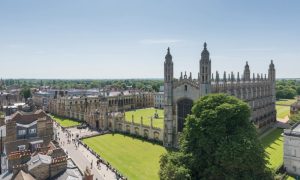United States of AmericaimmigrantsThere are many different types of visas, each with different eligibility requirements and applicants. Understanding the different types of visas will help applicants choose the most appropriate route to achieve theImmigration to the United Statesof the target. The following will describe a few of the main types ofUnited States ImmigrationVisa to help you figure out which type of visa is best for you.
One,relative immigrationVisa (Family-Based Immigration)
immigrant visa for relativesAllows U.S. citizens and permanent residents to apply for green cards for their relatives for the purpose of family reunification. Relative immigration is divided into several priority categories based on the relationship between the applicant and the sponsor:
- Immediate Relative Immigrants (IRIs)
This category is available to spouses, unmarried children under the age of 21, and parents of U.S. citizens. The immediate relative category is not subject to a quota and the application process is relatively quick. - Preference Immigrants
U.S. citizens and green card holders can apply for visas for other relatives (e.g., siblings, married children, etc.), but these categories are subject to quotas and wait times can be long.
Suitable for people: The Relative Immigrant Visa is best suited for applicants who have relatives in the United States and wish to join their families. Applicants who have a U.S. citizen spouse or parent may be given preference for this visa.
Two,professional migrantVisa (Employment-Based Immigration)
Professional Immigrant VisaProvides immigration opportunities primarily for professionals, investors, and industry-specific talent with specific occupational skills or accomplishments in the United States. Common occupational immigration categories include:
- EB-1 Visa (Immigrant Brilliant Talent)
For persons with outstanding achievements in the fields of science, art, education, business or sports. This category does not require employer sponsorship, but it does require the applicant to provide proof of outstanding achievement. - EB-2 Visa (Highly Educated or Highly Skilled)
For applicants with advanced degrees or expertise, the support of a U.S. employer and a labor certification from the Department of Labor are often required. - EB-3 Visa (Professional and Skilled Workers)
For skilled workers and other professionals with a bachelor's degree or at least two years of work experience.
Suitable for people: The Professional Immigrant Visa is for applicants with highly skilled or specialized backgrounds who wish to work in the United States. Outstanding individuals, researchers, and skilled laborers may be considered for this type of visa.

Three,investment immigrationVisa (EB-5)
EB-5 Immigrant Investor Visais a green card pathway designed for investors who are able to invest a significant amount of money into the U.S. economy. Applicants are required to invest at least $800,000 (in a targeted employment area) or $1.5 million (in a non-targeted employment area) in a specific project and create at least 10 full-time jobs.
Suitable for people: This visa is suitable for high net worth individuals or entrepreneurs with sufficient capital who wish to immigrate through investment.The EB-5 visa has a longer approval time and involves a risky investment, but a successful investment can result in a green card.
IV. Special Talent Visa (O-1 Visa)
O-1 visaA nonimmigrant visa with the opportunity to convert to an immigrant visa, the O-1 visa is designed for aliens who have demonstrated extraordinary ability in the fields of science, art, education, business, or athletics. This visa has high requirements for the applicant to demonstrate outstanding achievement in the field to which he or she belongs.

Suitable for people: This visa is suitable for professionals who have made significant achievements in a particular field and who can provide sufficient evidence of their achievements, such as artists, scholars, athletes, etc.
V. Refugee and Asylum Status
Refugee and asylum visasImmigration opportunity for applicants who are at risk of persecution in their home country due to race, religion, political views, etc. Applicants are required to demonstrate the risk to the U.S. government and provide appropriate supporting documentation. If successful in obtaining refugee or asylum status, applicants may apply for a green card after one year.
Suitable for people: This category applies to applicants who are unable to return to their home country and seek asylum for exceptional reasons, but has higher evidentiary requirements and is subject to strict scrutiny.
VI. Lottery Immigrant Visa (Diversity Visa)
Diversity Visa (DV) LotteryThe Green Card Lottery, also known as the "Green Card Lottery", is a visa program offered by the United States to increase immigrant diversity. Approximately 50,000 slots are available each year for applicants from countries with low immigration rates. Applicants are required to have a certain level of education or work experience and are granted a visa through a lottery.
Suitable for people: The DV visa is suitable for applicants from eligible countries. Although the chances of a lottery are low, it is an opportunity for applicants from these countries to apply without the need for employer or relative sponsorship.
Different types of immigrant visas are available to applicants from different backgrounds. The categories of relative, professional, investment, special talent and asylum visas each have their own advantages, and applicants should choose the most appropriate route based on their personal circumstances and conditions. In additionU.S. Immigration PolicyAdjustments may be made each year, and applicants are advised to keep abreast of policy developments so that they can adjust their immigration strategies in a timely manner.






